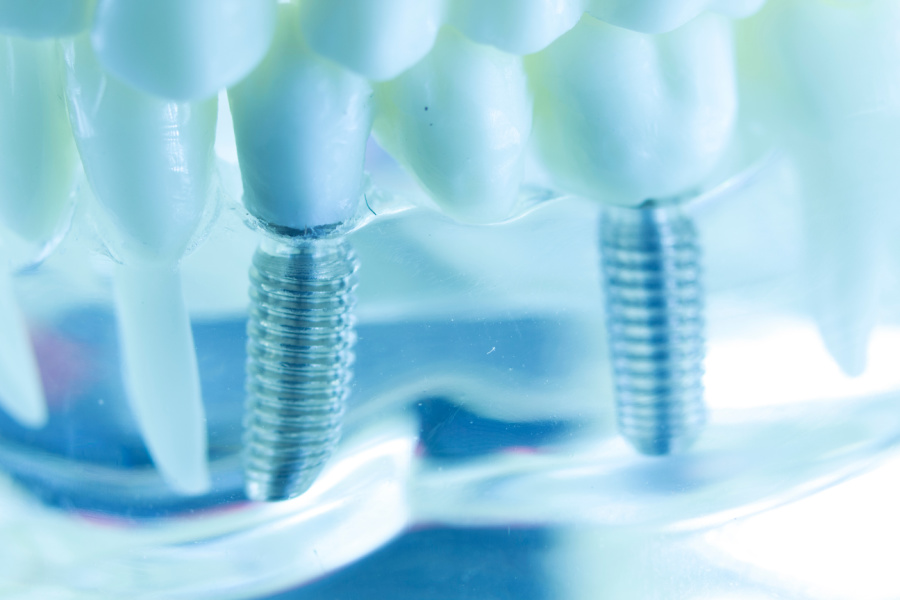
If you’ve been researching tooth replacement options, you’ll likely know that dental implants are widely regarded as the most effective and long-lasting solution. However, the high cost of dental implants in the UK can be a major barrier for many people.
It’s no wonder that many are interested in whether dental implants might be available through the NHS. While the NHS does offer dental implants in certain cases, access is limited and subject to strict eligibility criteria. In this guide, we’ll walk you through what to expect, who qualifies, and how you might improve your chances of receiving treatment through the NHS.

Yes, dental implants can be available on the NHS—but only in limited circumstances.
NHS-funded dental implants are typically reserved for patients with serious medical needs. While missing teeth can be distressing, this alone usually isn’t enough to qualify for implant treatment under the NHS. As a result, many people who hope to get implants through the NHS are instead offered alternative options like dentures or bridges.
Due to high demand and limited funding, the NHS prioritises cases where implants are considered medically essential—such as after significant trauma, major surgery, or treatment for oral cancers. These cases often require reconstructive dental work and are assessed through a referral and consultation process.
If you don’t meet the strict criteria for medical necessity—such as having extensive tooth loss that severely affects function—dental implants will typically need to be paid for privately.
Dental implants offer a long-lasting, fixed solution for replacing missing teeth—without the need to remove them like traditional dentures.
An implant acts as an artificial tooth root. Typically made from biocompatible titanium, it’s surgically placed into the jawbone. Over time, the implant bonds with the bone in a natural process called osseointegration, creating a strong foundation for a replacement tooth or bridge.
Once healed, a custom-made crown, bridge, or denture is attached to the implant, restoring both the appearance and function of the missing tooth.
Dental implants can replace a single tooth, several teeth, or even a full set. In addition to restoring your smile, they help preserve jawbone health by mimicking the stimulation that natural tooth roots provide.
While dental implants are not routinely available on the NHS, there are specific situations where you may qualify for NHS-funded treatment. According to guidance from the Royal College of Surgeons, certain medical and clinical conditions can increase your chances of eligibility.
You may be considered for NHS-funded dental implants if:
In all cases, NHS guidelines require that conventional tooth replacement options—such as dentures or bridges—must be attempted first and found to be unsuccessful before implants are considered.
Keep in mind that eligibility is assessed on a case-by-case basis, and access to implant treatment through the NHS is limited and typically reserved for complex medical needs.
Meeting certain health and dental care standards can strengthen your case when applying for dental implants through the NHS. These include:

These factors suggest that you're committed to long-term dental health, which increases the likelihood of a successful outcome following implant treatment.
On the other hand, certain health and lifestyle issues may prevent you from being approved for NHS-funded dental implants, such as:
In such cases, alternative treatments like dentures or bridges may be considered more appropriate under NHS guidelines.
If you're approved for dental implants through the NHS, they are charged according to the standard NHS fee structure.
In England, dental implant treatment falls under Band 3, which means a set fee of £326 applies for the entire course of treatment. This fee remains the same regardless of whether you're having a single tooth replaced or multiple implants placed.
For eligible patients, especially those meeting specific medical criteria, implants may also be provided at no cost. However, this depends on your individual circumstances and entitlement to NHS dental care support.
At OraDental, we believe everyone deserves a healthy, confident smile. Many of our patients turn to us after struggling to find suitable solutions through the NHS or general dental practices. Others come to us because missing teeth are making it difficult to eat or speak comfortably, or they’re seeking a more secure alternative to loose or uncomfortable dentures.
Private dental implant treatment offers a long-lasting, natural-looking solution that restores both function and confidence—helping you enjoy life without compromise.